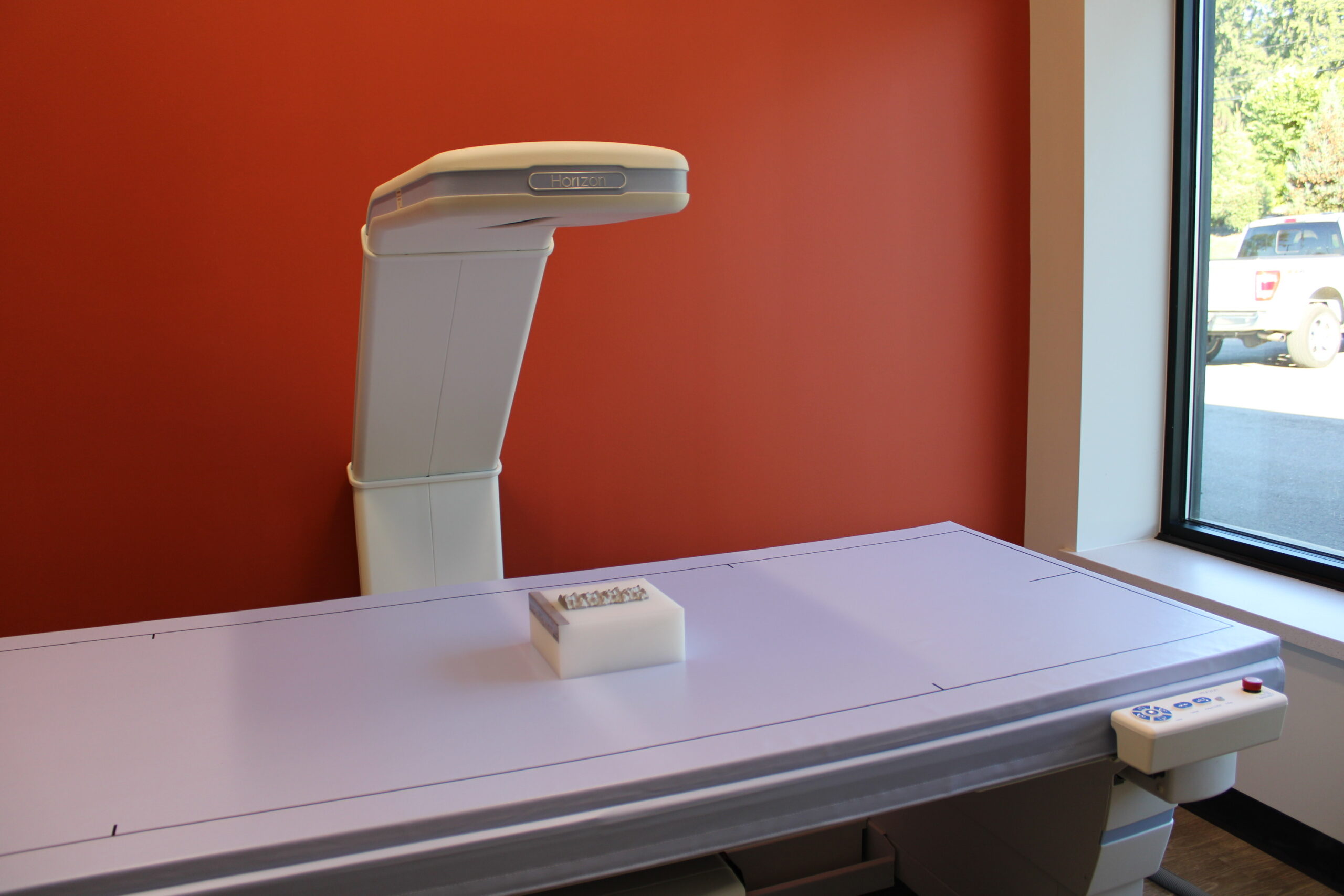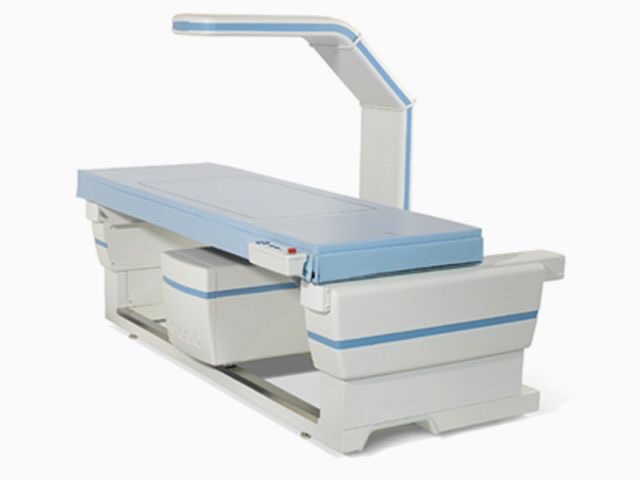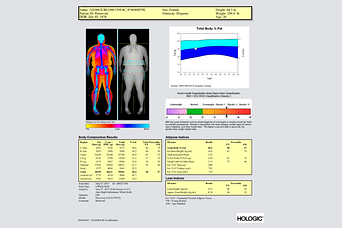Dexa Scan in Atlanta Georgia – A DEXA (Dual-Energy X-ray Absorptiometry) Scan is a quick, painless and highly accurate test that provides a complete picture of your body composition and is recognized as the baseline to better health. Understanding your body composition is crucial if you are considering or recovering from weight loss surgery. Dr. Will Johnson is an expert bariatric surgeon who uses DEXA Scans to help patients track progress, prevent health risks like heart disease, Type 2 diabetes, osteoporosis & stroke and create personalized treatment plans to ensure safe fat loss while maintaining muscle and bone strength.
Around 40% adults are classified as obese and nearly 10% fall into the severe obesity category in the United States. Bone health is also a growing concern, with about 12.6% of adults aged 50 and older having osteoporosis and around 43% having low bone mass which increases the risk for fractures. These are the reasons why DEXA Scan is essential for tracking body fat, muscle & bone density and detecting health risks.

What is a DEXA Scan?
Dual-energy X-ray technology is used in a DEXA scan to assess body fat, bone density and lean tissue with unparalleled accuracy. Tests such as BMI or standard scales that only provide superficial data, whereas a DEXA scan provides the accurate composition of the body.
Patients can use this information for health purposes, such as:
- Identify the reasons for risks such as osteoporosis, diabetes or heart disease.
- Monitor visceral fat associated with serious metabolic health conditions
- Assess muscle preservation during weight loss or strength training
- Create a customized strategy for sustained health and wellness.

What are the Types of DEXA Scans?
Here are the types of DEXA Scans, including:
1. Body Composition DEXA Scan
The Body Composition DEXA Scan gives you the most accurate overview of your body’s composition, including:
- Total body fat percentage
- Visceral fat levels (fat surrounding your organs)
- Muscle mass and distribution through your arms, legs and trunk
- Central abdominal fat, an important indicator of cardiovascular and metabolic risk
This DEXA scan is an excellent option for patients planning to undergo weight loss surgery, fitness enthusiasts and/or athletes and anybody wanting a detailed picture of progress.
2. Bone Density DEXA Scan
The Bone Density DEXA Scan measures the strength of your bones and is the accepted standard for diagnosing osteopenia (low bone mass) and osteoporosis. The report will include two scores.
T-score: Compares your bone density to that of a healthy young adult.
- 1 and above = Normal
- 1 to -2.5 = Osteopenia
- 2.5 and below = Osteoporosis
Z-score: Comparison to the age based reference group of the same gender and age.
The Bone Density DEXA scan is particularly useful for adults over 50, postmenopausal women, and people with a risk factor such as low body weight, family history of fracture or a chronic condition that decreases bone strength.

How a Body Composition DEXA Scan Works
Here are the key steps on how a body composition DEXA scan works:
- Find a provider: Schedule your DEXA Scan appointment with Bodiatrics
- Prepare for your scan: Do not use calcium supplements for 24 hours before the scan and wear clothes with no metal zippers or hooks
- The procedure: Lie flat on the scanning bed for about 7 minutes and the scanner will measure your body composition
- Immediate results: As soon as the scan is done, your results are reviewed and discussed in detail.

How a Bone Density DEXA Scan Works
Here are the key steps on how a bone density DEXA scan works:
- Consult your doctor: Your doctor can discuss your appropriateness for bone density testing
- Schedule your scan: Bone density scans are most often done on the hips, spine or forearm
- Preparation: Same preparation as body composition scans (no calcium supplements and no metals in your clothing)
- The procedure: A bone density scan takes around 10 to 20 minutes
- Results: Your doctor will explain your T-scores and Z-scores and may recommend next steps for treatment or prevention.
How to Understand DEXA Scan Results?
Here is how you can understand DEXA Scan results:
Body Composition Assessment
- Total body fat percentage: Represents your level of total fat relative to healthy levels for an adult.
- Lean muscle mass: Represents the amount of muscle throughout the body
- Regional distribution: Measures the muscle and fat in each limb and trunk of the body
- Visceral fat: A key indicator of risk for heart disease and Type 2 diabetes
Bone Health Assessment
- T-score – Indicates if your bone density is normal, low (osteopenia) or low (osteoporosis).
- Z-score – Identify whether your bone density is unusual for your age and population and may require additional tests

Why Choose Bodiatrics for Your DEXA Scan?
Although a DEXA scan is itself a powerful tool but its true value lies in how the results are used. That is where Dr. Johnson’s team and their medical expertise comes in. There are several reasons to choose Bodiatrics for your DEXA scan, some of which include:

- Decades of experience helping patients achieve their health and weight loss goals
- Comprehensive care approach
- Personalized health tracking
- Personalized treatment plans
- Unmatched medical expertise
If you are considering a DEXA scan, schedule an appointment with Bodiatrics today through our contact details:
Bodiatrics – Johns Creek Office
Address: 6920 McGinnis Ferry Road, Suite 340, Suwanee, GA 30024
Phone Number: (404) 854-4123
Office Hours:
- Monday to Friday: 8:30 AM – 5:00 PM
- Closed Saturday & Sunday
Frequently Asked Questions About DEXA Scan
To prepare for your DEXA scan, you should:
- Inform Your Healthcare Provider
- Avoid Calcium Supplements
- Wear Comfortable Clothing
- Remove Metal Objects
- Hydrate & Optional Fasting
- Avoid Strenuous Activity
- Bring a List of Medications
- Follow Specific Instructions
